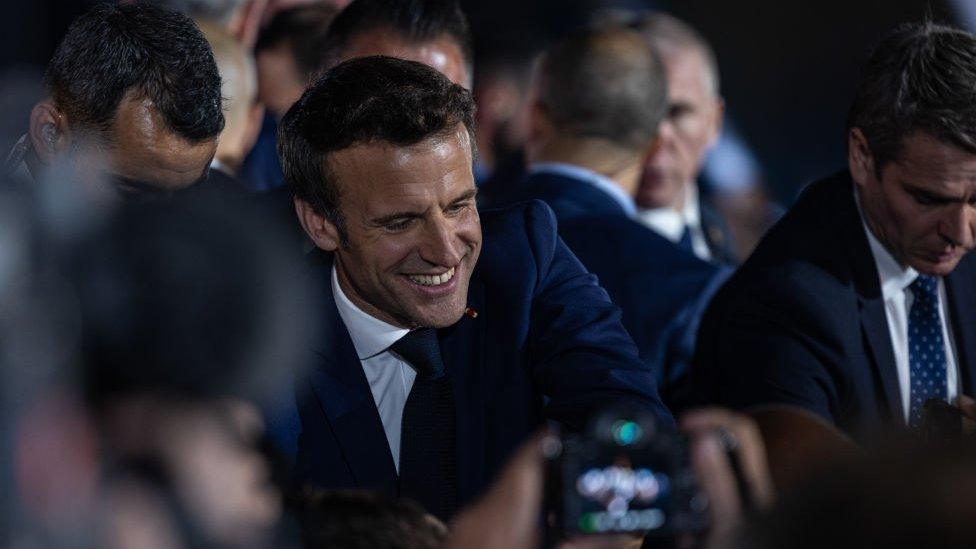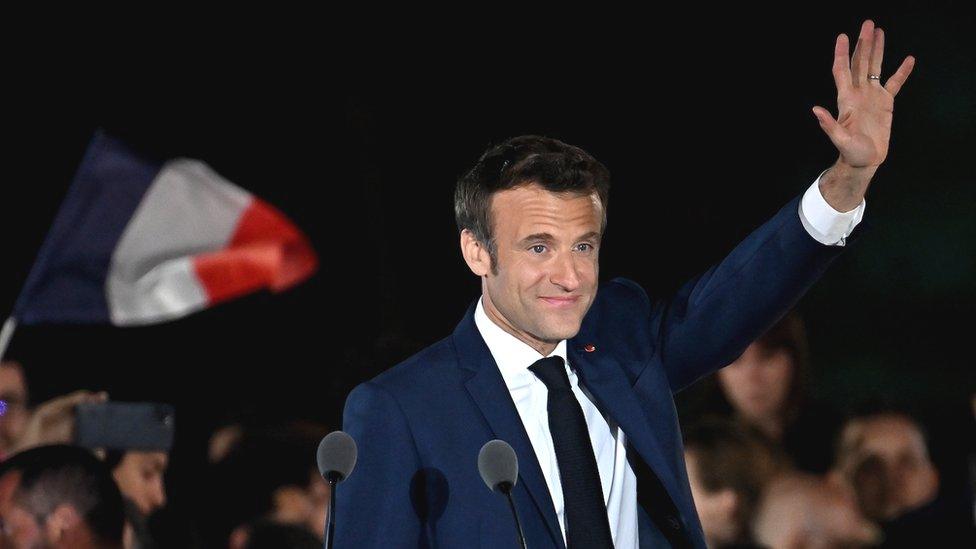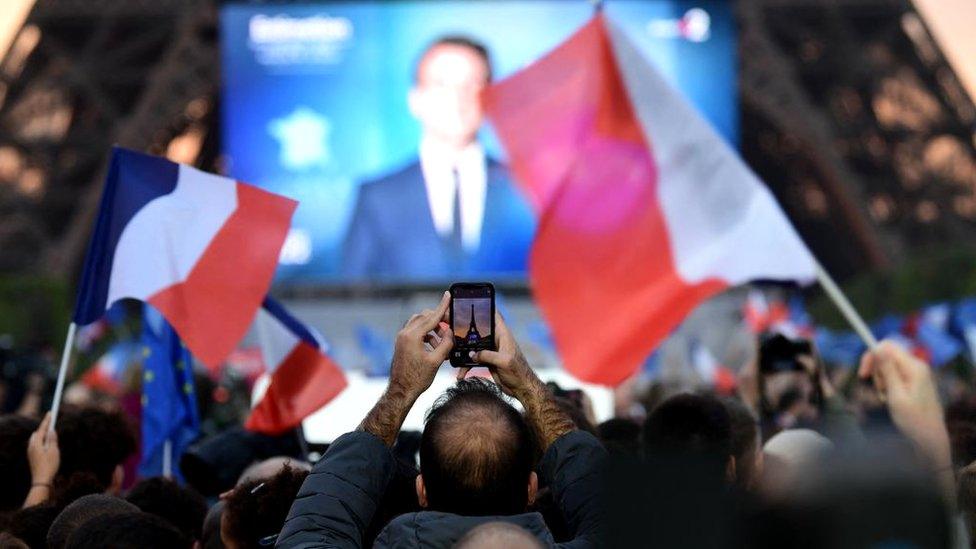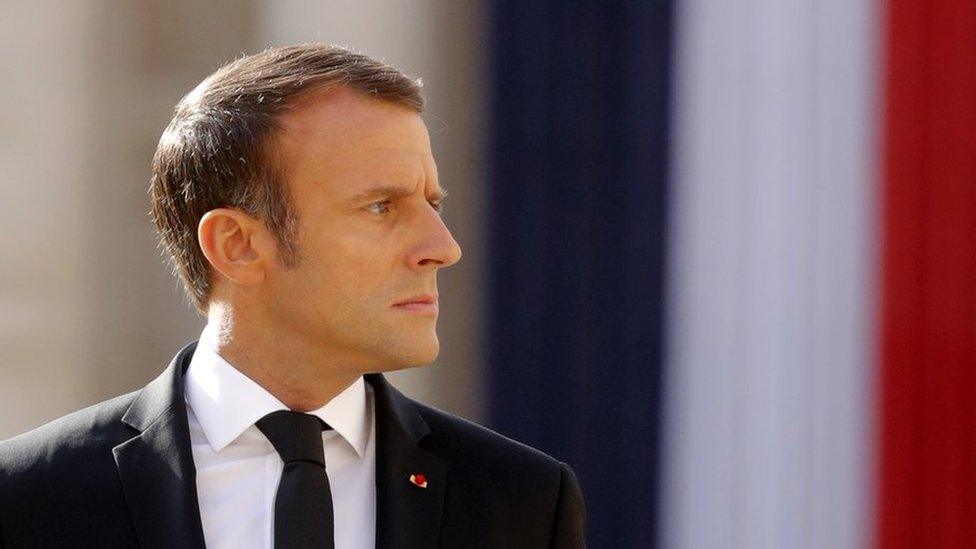France divided, EU delighted over Macron win
- Published

European leaders rushed to applaud the French president, who defeated Eurosceptic Marine Le Pen
It was striking.
One French voter after another we interviewed ahead of Sunday's presidential election told us: "I'll vote Macron but only to keep Le Pen out."
A concerted public effort to keep a far-right, or right-wing nationalist, candidate from becoming president is nothing new in France.
But the emerging breakdown of Sunday's vote must give Emmanuel Macron pause for thought.
Add those reluctant voters of his to the 40% that voted for Marine Le Pen, plus the millions who spoiled their ballot or refused to vote at all, and Macron's "Pour Tous" (For Everyone) campaign slogan starts to look very hollow indeed.
In his victory speech, held in front of the backdrop of the French flag and the Eiffel Tower, an unusually humble-sounding Macron admitted that his was a divided country, and that he'd do his best to heal those divisions.
That won't be easy. And he knows it.
The first looming challenge will be to garner a healthy majority in parliamentary elections next month.
France isn't only fragmented across party lines, it is polarised between wealthy urban centres (particularly Paris) and forgotten towns and villages; between nationalists and internationalists; between the wealthy, the poor and the marginalised.
Five years ago, when he first became president, he promised to neither favour the political right or left. He'd be socially just, he said, while kick-starting the economy.
But then came a pandemic, followed by an economic downturn and Russia's invasion of Ukraine. Never mind the constant pressure President Macron felt because of the growing prominence of traditional right and far-right public concerns - like immigration and law and order.
His promised social justice and environmental reforms fell by the wayside. Their champions, like one teacher I met leaving a polling station in tears on Sunday, are sceptical - to put it mildly and politely - that the next five years of Macron's presidency will be any different. Especially with voter support for Marine Le Pen now stronger than ever before.
"Many voted to build a barricade against the far right", says Macron
He is a truly divisive figure at home, but in Brussels Mr Macron is beloved. At least compared to his presidential rival.
European Union leaders rushed to applaud him on Sunday night.
It's notable, looking at their tweets - from the European Commission president, to the Spanish and Portuguese prime ministers and German Chancellor Olaf Scholz - that each and every one of them not only congratulated Macron, but trumpeted the confidence vote in Europe they interpret in his victory too.
Le Pen is a passionate Eurosceptic. Macron, however, is a huge EU-enthusiast whose campaign team handed out EU flags alongside election pamphlets at his rallies.
His long-discussed proposals to make Europe more independent - in terms of food production, energy and defence - are now very popular amongst EU leaders after Russia's invasion of Ukraine and the Covid-19 pandemic that so affected global supply chains.
As the EU's second largest economy and only big military power - now that the UK has left - France has long played a leading role in Brussels and in Nato.
Le Pen's historically close ties to Moscow and her intention to pull France out of Nato's military command worried US and European allies.
Now they're hugely relieved. "We can count on France for five more years," tweeted European Council President Charles Michel on Sunday night.
And in his congratulatory message to Macron, Prime Minister Boris Johnson described France as one of the UK's closest and most important friends.
- Published25 April 2022

- Published24 April 2022

- Published22 April 2022

